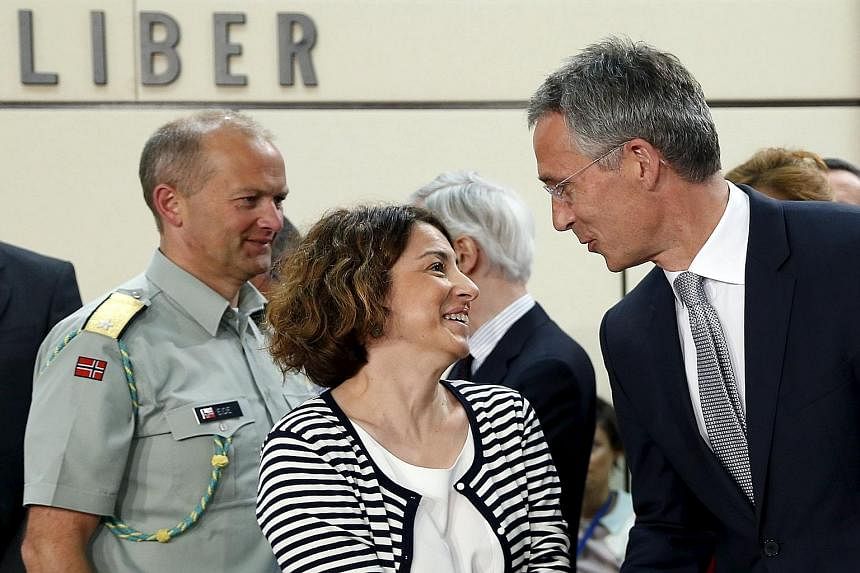BRUSSELS • Nato Secretary-General Jens Stoltenberg said yesterday that the military alliance stood by key member Turkey in the face of "terrible acts of terror" and instability along its southern border.
"Nato is following developments very closely and we stand in strong solidarity with our ally Turkey," Mr Stoltenberg said at the opening of an emergency meeting of all 28 member states.
"Terrorism in all its forms can never be tolerated or justified. It is right and timely that we hold this meeting today to address the instability on Turkey's doorstep and on Nato's border."
Turkey, the alliance's only Muslim member and one of its most powerful, called for the meeting after a bloody attack that it blamed on "terrorists" in the southern town of Suruc last week.
Mr Stoltenberg made no comment about Turkey's decision to launch air strikes against both Islamic State in Iraq and Syria (ISIS) fighters and Kurdish militants - in effect combining its campaigns against the Kurds and ISIS into a broad "war on terror", even though the two groups are themselves bitterly opposed.
Saudi King Salman has also expressed support for Turkey after it launched air strikes against ISIS in Syria and the Kurdish militants in Iraq, state media said yesterday.
The King told Turkish President Recep Tayyip Erdogan on Monday that he backed Turkey's right to self-defence, the official Saudi Press Agency said.
Mr Erdogan had telephoned the King to brief him on the air strikes that it launched last week after a deadly bombing inside Turkey blamed on ISIS and a reprisal killing of police by Kurdish militants.
The King condemned the attacks and said he "supports Turkey's right to defend itself and protect its citizens from terrorist acts" which pose a threat to the security of the region and the world, the press agency said.
Saudi Arabia is part of a US-led coalition that has been carrying out air strikes against ISIS in Syria since last September.
But Turkey had previously stood aloof, prompting accusations - strongly denied by Ankara - of complicity with the extremists.
Turkey has since changed its stance and reached an agreement with the US that envisions US warplanes, Syrian insurgents and Turkish forces working together to sweep ISIS militants from a 96km strip of northern Syria along the Turkish border.
Turkish officials and Syrian opposition leaders are describing the agreement as something just short of a prize they have long sought as a tool against Syrian President Bashar al-Assad - a no-fly zone in Syria near the Turkish border.
But US officials said the plan is not directed against Mr Assad. They also say that while a de facto safe zone could indeed be a by-product of the plan, a formal no-fly zone is not part of the deal.
They said such a zone was not included in the surprise agreement reached last week to let US warplanes take off from Turkish air bases to attack ISIS fighters in Syria, even though Turkey had long said it would give that permission only in exchange for a no-fly zone.
Instead, the officials said, Turks and Americans are working towards an agreement on the details of an operation to clear ISIS militants from a heavily contested area roughly between the eastern outskirts of the city of Aleppo and the Euphrates River.
Whatever the goal, the plan will put US and allied warplanes closer than ever to areas that Syrian aircraft regularly bomb, which raises the question of what they will do if Syrian warplanes attack their partners on the ground.
NEW YORK TIMES, AGENCE FRANCE-PRESSE

